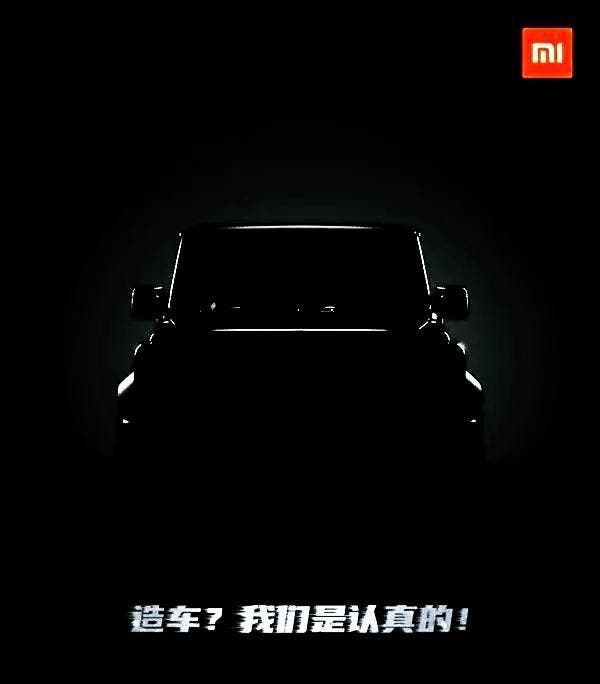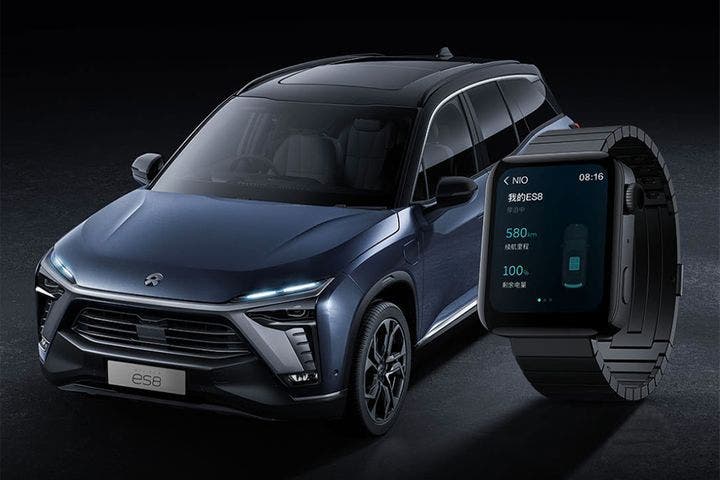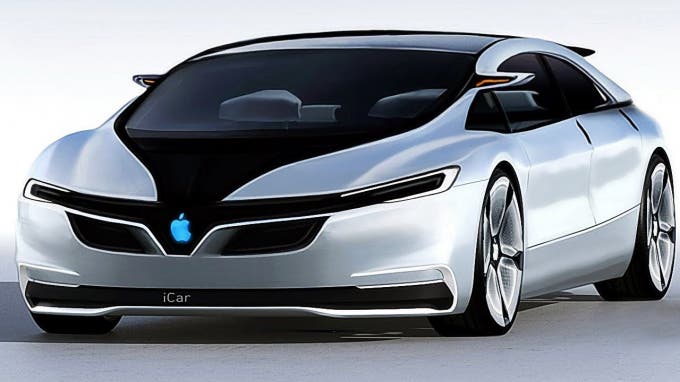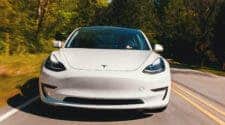There have been rumors that Apple will make its car in the near future. But the Cupertino-based company is not the only manufacturer that ‘is accused’ in this. We have heard similar news about Huawei and Xiaomi as well. But if it’s clear that Huawei just makes various chips and develops software for autonomous driving (at least, for the time being), Xiaomi and Apple are actively working on their own projects. So we decided to take investigation of this case and understand what Xiaomi Car and Apple Car will bring.
Apple Car
Project Titan
Recently, Reuters quoted sources as reporting that the Apple Car plan is still ongoing, and Apple aims to start mass production of its own brand cars in 2024. Moreover, the source claim it will use a new generation of batteries that take into account power saving and safety.

The Apple car is developed under Project Titan. This project was launched in 2014. Apple hopes to enter the automobile manufacturing industry when the growth of consumer electronics gradually slows down. Apple originally hoped to launch the first car in early 2020. Project Titan has successively undergone team changes and complex parts supply chain, causing time delays. In 2016, the direction of the project was changed from self-manufactured vehicles to self-driving systems.
Also Read: Apple Car To Come In 2021, Two Years Ahead Of The Original Schedule
Commander Project Titan kept changing roles during this period. The latest report pointed out that the person in charge for the skillet after Apple switched to 2018 Tesla Doug Field, under his leading, in early 2019 the project laid off plan managers, engineers and product designers, and other 190 workers. Now, it’s reported that the project is going well.
Apple’s Goal
The source pointed out that Apple’s latest goal is to create a private electric car that locks in the general mass market, which is different from Alphabet Waymo‘s self-driving car for passengers.
Another source said that Project Titan’s strategic focus is on a new battery design. It should use a unique monocell design. The latter will reduce the number of battery modules and films, thereby freeing up more battery internal space for storage. Incorporating more active materials will not only significantly reduce battery costs, but also effectively increase driving distance. In addition, Apple is also studying lithium iron phosphate batteries (LFP). They are less prone to overheating. Thus, they should to be safer than other lithium batteries. The source pointed out that it’s the next-generation battery, which will brighten the eyes of the world.
Apart from this, Apple may also minimize participation and only produce a part of the system for self-driving cars. Then, it can integrate them into vehicles launched by traditional automakers. The COVID-19 epidemic in 2020 may delay mass production until 2025.
In response to the lithium iron phosphate battery, Tesla CEO Elon Musk pointed out via Twitter on Tuesday that Tesla’s Shanghai plant has now been used to produce mid-range vehicles. He also pointed out that the report claiming the design of a monocell is unlikely to be achieved electrochemically.
Making Apple Car May Take Longer
Not that long ago, Bloomberg quoted sources as reporting that Apple Car may be five to seven years away from its actual launch.
Bloomberg reported that Apple’s Project Titan has indeed expanded from a purely self-driving system a few years ago to a more ambitious project. Apple has organized a small team of hardware engineers to produce driving systems, vehicle interiors, and design external car bodies. The members also include several senior executives dug from Tesla.
However, some members believe that the car plan has not yet come to the mass production stage. If Apple Car really promotes the plan, it will take 5 to 7 years for the product to be launched. One of the reasons is that under the COVID-19 epidemic, members of the task force can only work at home or work in the company for a short period of time, which delays the progress of the entire plan.
The South Korean media Hyundai Economic Daily News reported last week and then Hyundai Motor Company confirmed to CNBC that it is negotiating with Apple to produce electric cars.
However, Hyundai Motor pointed out that according to the company’s understanding, Apple is negotiating with many global automakers, including Hyundai Motor. As the discussions between the two sides are still in the early stages, nothing has been decided yet.

Hyundai Motor announced in December last year that it would acquire an 80% stake in the robotics company Boston Dynamics for US$1.1 billion. At that time, Hyundai Motor stated that it planned to use Boston Dynamics’ robots to realize the company’s vision of smart mobile solutions, investing in self-driving cars, connected and electric vehicles, and smart factories, operations research, construction and other automation solutions.
Analysts are optimistic about the cooperation between the two parties
Analysts said that the cooperation between the two companies will produce synergies. Hyundai has large-scale production capacity, and Apple has an advantage in software.
Samsung Securities Auto Analyst Im Eun-Young said: ‘Through cooperation, Hyundai Motor can provide Apple with its electric vehicle platform, and Apple can provide the necessary technology and software for electric vehicles. If it becomes a reality, it will be a huge leap in the industry for Korean cars.’
Hyundai Motor Chairman Euisun Chung, who took office last October, also said that the company will actively promote new growth businesses, focusing on electric vehicles, hydrogen fuel cell vehicles and future mobile platforms.
Last month, Hyundai Motor launched a new platform that will support its electric vehicle business in the next few years. Currently, South Korea’s largest automobile group (Hyundai Motor) is committed to seizing a larger share in the fast-growing electric vehicle market.
According to Hyundai’s medium and long-term strategy, its goal is to supply 8% to 10% of the world’s electric vehicles by 2025. Hyundai Motor plans to launch more than 12 battery-powered electric vehicles (BEV) based on E-GMP, which is a dedicated electric vehicle platform for Hyundai Motor.
In addition, in order to transform into a leading service provider in the field of future travel, Hyundai Motor has also established a joint venture company Motional for autonomous vehicles with Aptiv.
Xiaomi Car
Well, let’s travel to China. Everything is more interesting here. Say, Baidu has officially announced that it will personally build cars; Alibaba and SAIC have jointly established Zhiji Auto. But Xiaomi, which has always referred to itself as an ‘Internet company’, frequently appears on topics concerning car manufacturing.
In the 10 years since this Internet company started with smartphones, three-fifths of the time surrounded by ‘car-making’ rumors has been around. Although these rumors have been denied one by one by the authorities, the endless reverie they have aroused has largely reflected the expectations of the outside world.

More importantly, Lei Jun said in 2015, ‘We will not build a car in three to five years because of insufficient energy.’
From now to 2021, the ‘three to five years’ that Lei Jun originally said has expired. Moreover, the development of the smartphone industry has approached the ceiling. In contrast, the smart car market is in the early stage of its outbreak.
At the same time, as new players continue to cannibalize the market, the optimal time window for the layout of the smart car market will also be closed at an accelerated rate. Perhaps Xiaomi can also try to build a car.
Should Xiaomi build a car?
After 10 years of hard work, Xiaomi has become a real internet giant. But it is undeniable that Xiaomi started from smartphone products, and now half of Xiaomi’s world is still supported by the smartphone business. According to the latest financial report data, in Q3 2020, Xiaomi’s smartphone business revenue accounted for 66% of the company’s total revenue.
However, with the development of technology, it is difficult for smartphones to have disruptive innovations. And the demand for user replacement is no longer strong.
Smartphones have realized the transition from the incremental era to the inventory era, and the market is close to saturation. According to the latest survey by IDC, in Q3 2020, the global smartphone market shipments will drop by 1.3% year-on-year. Prior to this, the year-on-year decline in Q1 in 2020 was 11.7%; the year-on-year decline in Q2 in 2020 was as high as 16%. This is the worst performance in the history of the smartphone industry.
If the bleakness of the smartphone market in 2020 is affected by the epidemic, then looking at the entire 2019, global smartphone shipments were 1.371 billion units, a year-on-year decline of 2.3%, which is the third consecutive year that global smartphone shipments have declined.
New Market, New Opportunities
Focusing only on the Chinese market, under favorable policies, new electric cars sales will reach 20% of total vehicle sales by 2025.
This means that even if overall car sales no longer increase, based on the sales scale in 2019, the market size of new electric cars will exceed 5 million in 2025, which is about five times the current size.
In addition, most countries and regions in the world are promoting the development of new electric cars, and the market size will also multiply.
Moreover, automobiles have begun to transform from traditional means of transportation to smart mobile terminals. They have become important scenarios for the landing of emerging technologies such as big data, cloud computing, 5G and AI.
What Will Make Future Cars Competitive?
In the future, traditional car bodies and chassis will no longer be the leading factors of value. Instead, computing and connection technologies + autonomous driving software will constitute 70% of the value of future cars. These technologies are precisely where the advantages of Internet companies make cars.
Based on the recognition of the potential of the Internet car model, Tesla’s total market value has soared to more than 800 billion U.S. dollars, almost four times that of Toyota (about 210 billion U.S. dollars), which has long dominated the global auto companies’ market value list.
Even Baidu, which only announced the components of the smart car company, after the official announcement of the news, the stock price rose by 70 billion yuan ($10.82 billion) overnight.
Regardless of the angle of view, the smart car market has infinite opportunities, which has attracted many crossover players. Among them, for smartphone manufacturers with a keen sense of smell, smart cars are very likely to be another business growth point after their smartphones.
To this end, Apple has been low-key preparations for many years, Huawei is gearing up, and Xiaomi may also be looking for a suitable opportunity.
In addition, as a major smart terminal device in the future, smart cars have a deeper meaning for Xiaomi. We mean it can become a key part of Xiaomi’s second largest business AIoT business and expand its Internet of Everything.
Can Xiaomi build a car?
Although Xiaomi has never made a clear intention to build a car, as early as 2013, Lei Jun visited Musk twice and showed great interest in smart cars.
Subsequently, Xiaomi and Lei Jun began a series of investments in smart cars. The car-making level includes two new car-making forces for young users, Weilai Automobile and Xiaopeng Automobile; the Internet of Vehicles investment includes PATEO and Kay Lide; autonomous driving levels such as Smart Traveler.
The ecological chain companies invested by Xiaomi also include companies that develop smart car products such as 70 Mai, Ruimi Technology, Banya Technology, and Chemi Technology. The product categories include smart driving recorders, smart mirrors, smart rearview mirrors, and smart car chargers.
The three parties, including Lei Jun, Xiaomi Technology, and Shunwei Capital, have invested in about 40 companies related to car manufacturing, automotive aftermarket and travel.
Strong Ecology
There are also many cases where Xiaomi itself and Xiaomi’s ecological chain companies and car companies jointly build smart cars. For example, through Xiao Ai, the Mercedes-Benz MBUX human-computer interaction system, the Weimar EX5 model, and the FAW Pentium T77 Mifen customized model can realize the control of smart home; Xiaomi smartphones can play Xiaopeng and BYD car keys role; the Xiaomi Mi Watch also supports the intelligent control of related models of Weilai.

Lei Jun once said, ‘The Internet of Vehicles is an important part of future technology. And cars are also the most important intelligent terminals in people’s lives in the future.
Based on the above information, the Internet of Vehicles is indeed the focus of Xiaomi’s deployment in the automotive field. Related business developments also confirm this point. According to some data, Xiaomi Technology Co., Ltd. has applied for the registration of the Xiaomi Mi Chelian trademark. At the same time, it applied for related graphic trademarks.
Moreover, the Internet of Everything ecosystem built with intelligent voice assistants as the core is the biggest advantage and best entry point for Xiaomi to enter the automotive industry.
The number of IoT devices connected to Xiaomi’s AIoT platform has reached 289 million. Moreover, the user base continues to increase. Among them, the number of users with five or more devices connected to the Xiaomi AIoT platform (excluding smartphones and laptops) has reached 5.6 million; in addition, Xiao Ai has 78.4 million monthly active users and is one of the most active voice assistants in the world.
Xiaomi Seems To Have Been Preparing For The Development Of Smart Cars All The Time
In 2015, Xiaomi applied for patents related to this field. According to the information disclosed by the National Patent Office, among the more than 2000 patents declared by Xiaomi Technology, about 10 are related to automobiles, mainly including vehicle cruise control, energy supplement, vehicle control, navigation, assisted driving, driving safety, parking information Forecast etc.
On the other hand, Xiaomi has begun to open up new automotive retail channels and deploy offline stores. In May last year, Xiaomi and Changan Mazda announced a strategic cooperation to help Changan Mazda in car sales.
Subsequently, Xiaomi’s e-commerce platform Xiaomi Youpin added ‘auto sales’ category, which is a key component of Xiaomi’s new retail strategy.
In short, Xiaomi has accumulated a certain amount of accumulated vehicles, smart cockpits, smart networking, and car sales. It has penetrated into many links in the smart car industry chain and built its own ecosystem and resource pool.
Once Xiaomi is determined to build a car, these forward-looking layouts will play a vital role.
How does Xiaomi build a car?
Looking at the entire industry, Internet car manufacturing can be divided into three main models: independent car manufacturing; independent design, car factory OEM; and in-depth cooperation with traditional car companies.
Unlike consumer electronic products, the automotive industry chain is complex and lengthy. Also, it has extremely high requirements for safety and reliability. At the same time, building a car independently requires heavy asset investment.
Therefore, based on in-depth cooperation, both Internet companies and traditional car companies can play their own advantages. One can bring better the effect of intelligence in software, and the other can provide security via hardware.
This model has been endorsed by many giants: Baidu + Geely, Ali + SAIC (Zhiji Auto), Huawei + Changan + CATL, Apple + Kia.
Earlier, Lei Jun stated in an open letter to employees that Xiaomi has clarified the strategic direction of ‘5G+AI+loT next-generation super internet’. It will invest 50 billion yuan ($7.73 billion) in this by 2025.
The smart car coincides with the three technologies of this strategy to a high degree:
- 5G can provide information transmission conditions with higher reliability and lower latency for intelligent networked vehicles to meet the needs of vehicles and the outside world;
- AI technologies, including computer vision, machine learning, natural language processing, etc. are all core applications in the smart car scenario;
- IoT devices are an indispensable part of Xiaomi’s getting on the car.
If Xiaomi really decides to build a car, it is likely to also cooperate with car companies.
After all, in the third quarter of 2020, Xiaomi’s smartphone shipments ranked top three in the world. Also, its stock price is rising. Relying on one’s own strength to rush all the money to the smart car, which is still losing money, may bring risks.
Moreover, Xiaomi smartphones are often known for their high performance-to-price ratio. But it’s not a small challenge for Xiaomi to create a smart car that meets the expectations.
‘Smartphone’ Is, To Some Extent, Xiaomi’s Core Advantage
As the smart hardware with the highest degree of close integration with users’ lives, smartphones can clearly understand users’ daily habits and life patterns, making it easy to collect massive amounts of user real data. This is an essential element to create a personalized and customized driving experience.
At the same time, in terms of smartphones, Xiaomi has developed the MIUI operating system on the basis of Android. Perhaps this successful experience can also be copied to the car and the ‘MIUI system’ suitable for cars.
What happens if you don’t build a car?
Prior to this, China has proposed to achieve 20% of the total sales of new electric cars by 2025. It should achieve the ‘carbon peak’ by 2030 and achieve the goal of ‘carbon neutrality’ by 2060. With the continuous support of policies, new electric cars will become a super outlet in the next few years. Moreover, it will be so even in the next ten years.
With the official announcements of Ali and Baidu, the curtain of Internet giants building cars has also begun. From the perspective of Xiaomi alone, its current focus is mostly on the Internet of Vehicles. And its willingness to build cars has not been clearly indicated. However, the competition in the field of Internet of Vehicles is now very fierce.
Xiaomi And Apple Are Not Unique
Technology giants such as Baidu, Alibaba, Tencent, Huawei, and Byte have all entered the game. And the problem of product function homogeneity is relatively serious.
Moreover, Xiaomi’s AIoT ecosystem is slightly closed and only supports devices in its own system. In contrast, Huawei has launched an open protocol that can be accessed by any manufacturer.
On the other hand, the ultimate goal of the Internet of Vehicles lies in the ‘car’ itself, and car companies have an absolute say in the choice of suppliers. Car companies start to increase investment in the Internet of Vehicles. So the future may further reduce the space for Internet giants to play.
More importantly, the mobile Internet era has encountered a bottleneck. So smart cars may become the traffic portal for the next era.
If Internet giants do not have a more in-depth layout on the smart car terminal, and only rely on smart devices and application ecology to ‘get on the car’ and ‘bind’, it may be more like a wedding dress for others. Nowadays, new car-building forces such as Tesla and Weilai are competing in front of this track. And new brands born within traditional car companies are also ready to go.
If Internet giants do not catch up, they are likely to lose their tickets to the autonomous driving arms race that has not yet arrived.
Of Course, Not All Crossover Vehicles Will Have Happy Ending
Dyson’s 30 billion yuan ($464 billion) electric car manufacturing project ended in failure. And many new car manufacturers also declared bankruptcy last year.
However, smart cars have gone through several years of development, and the business model has been initially verified. If Xiaomi announces that it is going to build a car one day, it will be logical.
After all, in the past 5 years, Xiaomi has not rarely threaded needles in the field of smart cars. Perhaps one day, these lines will form a huge net.
Conclusion
As you can see, not only Apple and Xiaomi, but many other internet giants are going to attack this niche. It’s reasonable – they want new markets. Well, in other words, they want to find directions that will be more profitable for them. But if the aforementioned Ali, Baidou, and others are top-level internet companies, people know Xiaomi and Apple for their mobile products mainly. In this regard, it’s quite interesting to see how they can cope with this task.
P.S. We took these two not accidentally. Xiaomi is called Chinese Apple because, at least, in the past, it was copying Apple’s business model and Apple’s phones.





